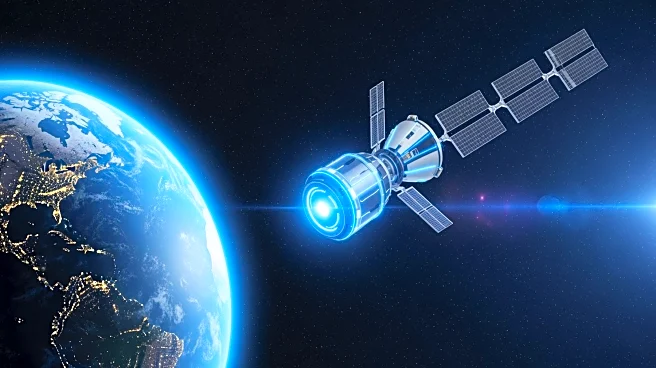What's Happening?
Amazon has officially rebranded its satellite internet initiative, Project Kuiper, to Amazon Leo. This change reflects the project's focus on Low-Earth Orbit (LEO) satellites, which operate at altitudes of 1,200 miles (2,000 kilometers) or less. Amazon Leo has already
conducted six launches, deploying a total of 72 satellites, including three launches using SpaceX Falcon 9 rockets. The company plans to launch over 80 missions, aiming to deploy approximately 3,000 satellites. This initiative is in direct competition with SpaceX's Starlink, which has recently launched its 10,000th satellite. Amazon Leo aims to provide fast and reliable internet access to underserved areas, similar to Starlink's mission.
Why It's Important?
The rebranding and expansion of Amazon Leo signify a significant step in the competitive satellite internet market. By increasing its satellite count, Amazon aims to challenge SpaceX's dominance in providing global internet coverage. This competition could lead to improved internet services and lower costs for consumers, particularly in remote and underserved regions. However, the rapid deployment of satellites raises concerns about space debris and the potential for collisions, which could impact future space missions and the safety of existing satellites. The rivalry between Amazon and SpaceX could drive technological advancements and regulatory discussions regarding space traffic management.
What's Next?
Amazon plans to continue its aggressive launch schedule, with over 80 missions planned to deploy its full constellation of satellites. As the competition with SpaceX intensifies, both companies may seek to enhance their technologies and expand their market reach. Regulatory bodies might also increase scrutiny on satellite launches to address concerns about space debris and collision risks. The outcome of this competition could shape the future of global internet access and influence policies on space exploration and satellite management.
Beyond the Headlines
The expansion of satellite internet services by companies like Amazon and SpaceX could have long-term implications for global connectivity and digital inclusion. By providing internet access to remote areas, these initiatives could bridge the digital divide, offering educational and economic opportunities to underserved populations. However, the environmental impact of increased satellite launches and the potential for space congestion must be carefully managed to ensure sustainable space exploration and utilization.


















